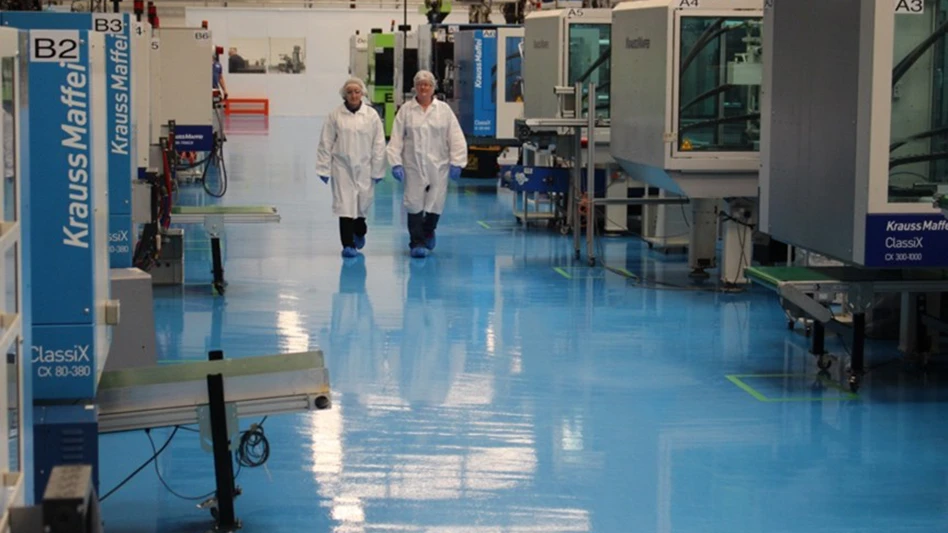 Apica Cardiovascular co-founders James Green, Vinod Thourani, Jorge Jimenez, and Ajit Yoganathan (left to right) point to the location on a heart model where their heart surgery system attaches. Apica Cardiovascular co-founders James Green, Vinod Thourani, Jorge Jimenez, and Ajit Yoganathan (left to right) point to the location on a heart model where their heart surgery system attaches. |
In the area of minimally invasive cardiac surgery, researchers have developed a technology that simplifies and standardizes the technique for opening and closing the beating heart during surgery.
Apica Cardiovascular, a Georgia Tech and Emory University medical device startup, licensed the technology from the institutions. The firm recently received a $5.5 million investment to develop the system even further, helping make the transapical access and closure procedure required for delivering therapeutic devices to the heart more routine for cardiac surgeons. The goal is to expand the use of surgery techniques that are less invasive and do not require stopping the heart.
With research and development support from the Coulter Foundation Translational Research Program and the Georgia Research Alliance, the company has already completed a series of pre-clinical studies to test the functionality of the device and its biocompatibility. James Greene currently serves as the CEO of the company, which has offices in Galway, Ireland, and Atlanta.
The technology was invented by Ajit Yoganathan, Georgia Tech Regents professor and Wallace H. Coulter, distinguished faculty chair in Biomedical Engineering; Vinod Thourani, an associate professor of surgery and associate director of the Structural Heart Center in Emory University’s Division of Cardiothoracic Surgery; Jorge H. Jimenez, chief technology officer of the company, who received his Ph.D. from the Coulter Department; and Thomas Vassiliades, formerly an associate professor of cardiothoracic surgery at Emory University.
Through another Georgia Tech-Emory partnership, researchers have developed a hand-held device called SpectroPen to help surgeons see the edges of tumors in real time during surgery. Statistics indicate that complete removal, or resection, of most solid tumors is the single most important predictor of patient survival.
 This hand-held device, called a SpectroPen, could help surgeons see the edges of tumors in human patients in real time during surgery. This hand-held device, called a SpectroPen, could help surgeons see the edges of tumors in human patients in real time during surgery. |
With funding from the National Institutes of Health, design of the SpectroPen was by Coulter Department Professor Shuming Nie and Associate Professor May Dongmei Wang. The researchers recently launched a startup company called SpectroPath to further develop and commercialize this technology.
The device detects tiny nanoparticles coupled to an antibody that sticks to molecules on the outsides of tumor cells. Nie and his collaborators have shown that the SpectroPen can detect tumors smaller than 1mm in rodents. Emory University radiology professor James Provenzale and surgeons at the University of Georgia’s College of Veterinary Medicine are currently using this device during operations to remove naturally occurring tumors in dogs. University of Pennsylvania assistant professor of surgery Sunil Singhal is applying for approval to conduct clinical trials involving patients with lung cancer.
Georgia Institute of Technology
Atlanta, GA
gatech.edu

Explore the January February 2012 Issue
Check out more from this issue and find your next story to read.
Latest from Today's Medical Developments
- Boston Scientific to acquire Penumbra, expanding cardiovascular portfolio
- Star Cutter introduces Double Pilot Reamer
- #80 Manufacturing Matters - Machining Strategies to Save Time and Improve your Process for MedTech Components with Kennametal Inc.
- Real-world parts and expert manufacturing advice
- Experts discuss the latest in toolholding technology
- How permanent magnets are powering medical innovation
- Forecasting the year ahead in design and manufacturing
- Tecomet, Orchid Orthopedic Solutions announce merger agreement





